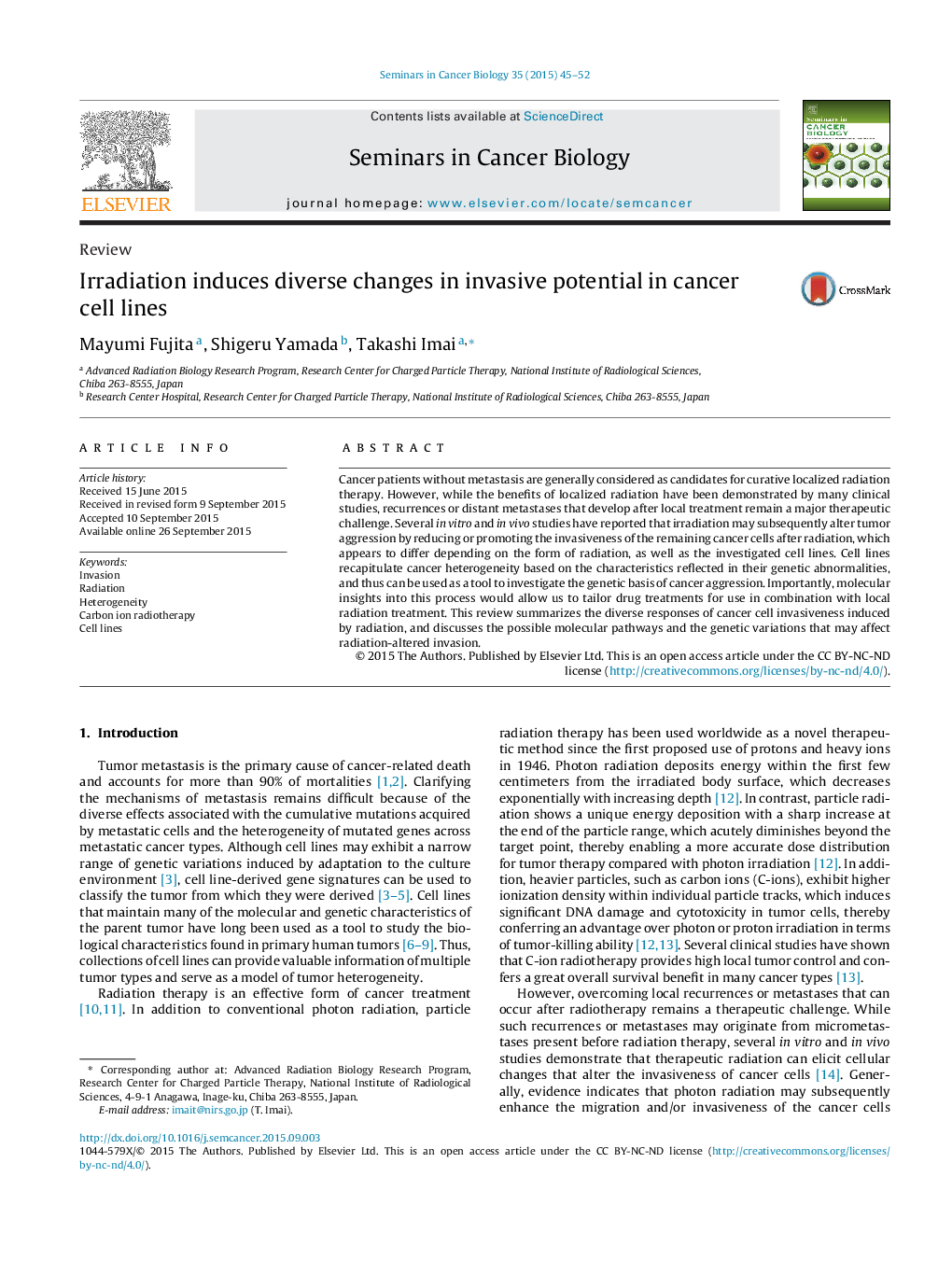| Article ID | Journal | Published Year | Pages | File Type |
|---|---|---|---|---|
| 8362133 | Seminars in Cancer Biology | 2015 | 8 Pages |
Abstract
Cancer patients without metastasis are generally considered as candidates for curative localized radiation therapy. However, while the benefits of localized radiation have been demonstrated by many clinical studies, recurrences or distant metastases that develop after local treatment remain a major therapeutic challenge. Several in vitro and in vivo studies have reported that irradiation may subsequently alter tumor aggression by reducing or promoting the invasiveness of the remaining cancer cells after radiation, which appears to differ depending on the form of radiation, as well as the investigated cell lines. Cell lines recapitulate cancer heterogeneity based on the characteristics reflected in their genetic abnormalities, and thus can be used as a tool to investigate the genetic basis of cancer aggression. Importantly, molecular insights into this process would allow us to tailor drug treatments for use in combination with local radiation treatment. This review summarizes the diverse responses of cancer cell invasiveness induced by radiation, and discusses the possible molecular pathways and the genetic variations that may affect radiation-altered invasion.
Related Topics
Life Sciences
Biochemistry, Genetics and Molecular Biology
Biochemistry
Authors
Mayumi Fujita, Shigeru Yamada, Takashi Imai,
